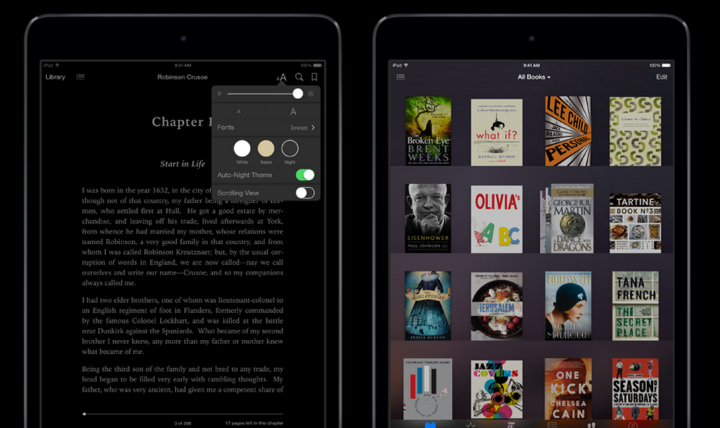
“Apple orchestrated a conspiracy among the publishers to raise ebook prices.”
“We conclude that the district court correctly decided that Apple orchestrated a conspiracy among the publishers to raise ebook prices,” wrote Second Circuit Judge Debra Ann Livingston in today’s decision.
It’s the outcome of charges brought by the Justice Department three years ago, which alleged that Apple organized an ebook pricing scheme, a violation of federal antitrust law. The company fought the litigation intensely, denying wrongdoing and “refusing to settle unlike the publishers with whom it allegedly colluded,” the Wall Street Journal reports.
The Justice Department’s lawsuit, which 33 states went on to join, was filed in 2012 after evidence arose that Apple willfully influenced the ebook market. The company led the charge to supplant the wholesale model for ebooks, which before the introduction of its iBooks store was the industry standard, with an agency model that granted publishers the right to dictate prices. Under the terms of a collective agreement with Hachette, Simon & Schuster, HarperCollins, Penguin, and Macmillan, Apple received a larger cut of sales in return.
The arrangement was mutually beneficial. Apple was able to quickly fill its newly-launched ebooks storefront, and publishers were given leverage against Amazon, which came to command between 80 and 90 percent of all ebooks sales in 2010 through aggressive pricing. Under the agency model, ebook prices quickly rose.
Despite today’s decision, Apple isn’t entirely without recourse — it could petition the Supreme Court or ask the Second Circuit to rehear the case. But the Wall Street Journal reports that the company’s expected to pay $450 million — most of it to customers of its iBooks store — as part of an agreement made with the Justice Department and plaintiffs in November.
“Apple did not conspire to fix ebook pricing and this ruling does nothing to change the facts. We are disappointed the Court does not recognize the innovation and choice the iBooks Store brought for consumers,” Apple said in a statement. “While we want to put this behind us, the case is about principles and values. We know we did nothing wrong in 2010 and are assessing next steps.”
Those sound like fighting words, but should Apple finally decide to pony up, it wouldn’t hurt the company’s bottom line too severely. As the Wall Street Journal notes, the proposed settlement amounts to less than 3 percent of Apple’s 2014 fourth quarter revenue.


